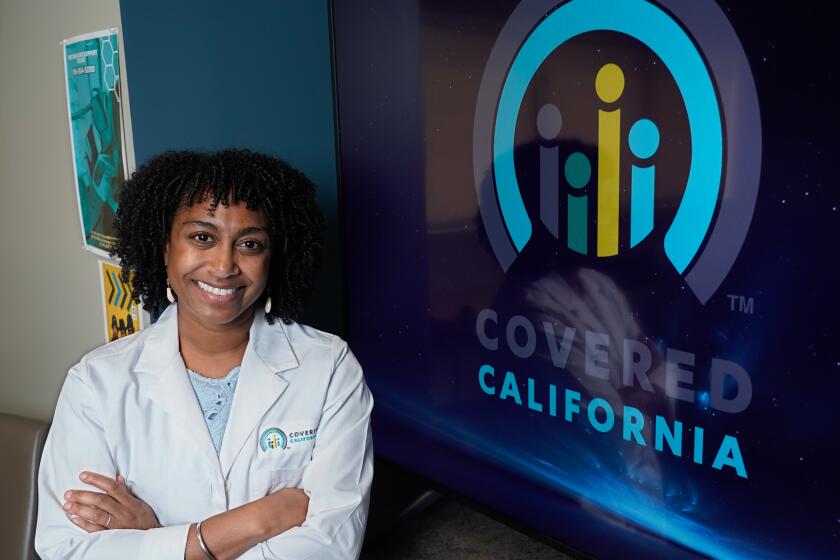KPC Medical Files for Chapter 11 Bankruptcy
- Share via
KPC Medical Management Inc., the largest for-profit medical group in Southern California, followed its closure of 38 clinics last week by filing for bankruptcy, a move that will further complicate payment for the care of more than 250,000 residents of the region.
“Bankruptcy poses a greater threat for continuation of care than groups closing for other reasons,” said California’s managed-care chief, Daniel Zingale. “But there are regulations in place to protect patients.”
Zingale warned former KPC members to be watchful for charges beyond their previous co-payments, delays in care or in scheduling medical procedures, delays in filling prescriptions and reassignment to new doctors more than 15 miles from their homes or jobs.
“All are violations of the patients rights regulations passed last year,” Zingale said.
He urged KPC members facing difficulties obtaining care to call the state’s toll-free hotline at (888) 466-2219, or contact his agency online at https://www.hmohelp.ca.gov.
KPC filed in Riverside County for reorganization under Chapter 11 of the U.S. Bankruptcy Code. Though such a filing might allow the company to reorganize its business, officials said this was the first legal step in the liquidation of the Anaheim-based company.
According to William Thomas, KPC’s general counsel, the Chapter 11 filing will allow the company to wind down its operations and transfer patients’ medical records to new health-care providers without having to put the business in the hands of a court-appointed trustee who “would be less familiar with the health-care business.”
Several health maintenance organizations--including Health Net, PacifiCare, Blue Cross and Aetna--have signed an agreement to put up roughly $5 million to meet a missed payroll for KPC’s 2,000 employees and operate a small staff to oversee the transition. The plan requires the approval of federal Bankruptcy Judge James N. Barr in Riverside. A hearing is expected later this week, Thomas said.
In the mid-1990s, a number of the clinics now owned by KPC, including the Friendly Hills and Mulliken medical groups, suffered financial troubles after the rapid expansion of their former corporate parent, MedPartners Inc. (which has since changed its name to Caremark Rx).
State regulators took control of the clinics in 1999, pushing MedPartners’ California subsidiary into bankruptcy. The state arranged the sale of much of the business to Dr. Kali Chaudhuri, who formed KPC believing he could make a go of the business. KPC Global Care Inc., a separate Riverside-based medical-management company owned by Chaudhuri, continues to operate and is not involved in the bankruptcy.
The same issues that plagued the former MedPartners--management problems and the inability to collect large enough payments from HMOs and insurers to cover the cost of providing patients with care--put the company under once again.
Jim Lott, executive vice president of the Health Care Assn. of Southern California, a trade group for hospitals, said KPC’s closure and bankruptcy has created “confusion” in the region’s health-care industry.
“Many of the patients are showing up to hospitals without doctors,” he said.
State law dictates that hospitals provide emergency care to stabilize a patient or deliver a baby.
“A patient cannot be denied emergency care, but then the hospital and the treating physicians must begin what looks to be a yearlong struggle to collect payment,” Lott said.
Ultimately, the big HMOs that contract with KPC will likely be responsible for the bill, according to Lott.
“The underwriters all still exist and they have an obligation to pay for services provided their members even though the physician group they contracted with went bankrupt,” Lott said.
More to Read
Inside the business of entertainment
The Wide Shot brings you news, analysis and insights on everything from streaming wars to production — and what it all means for the future.
You may occasionally receive promotional content from the Los Angeles Times.











